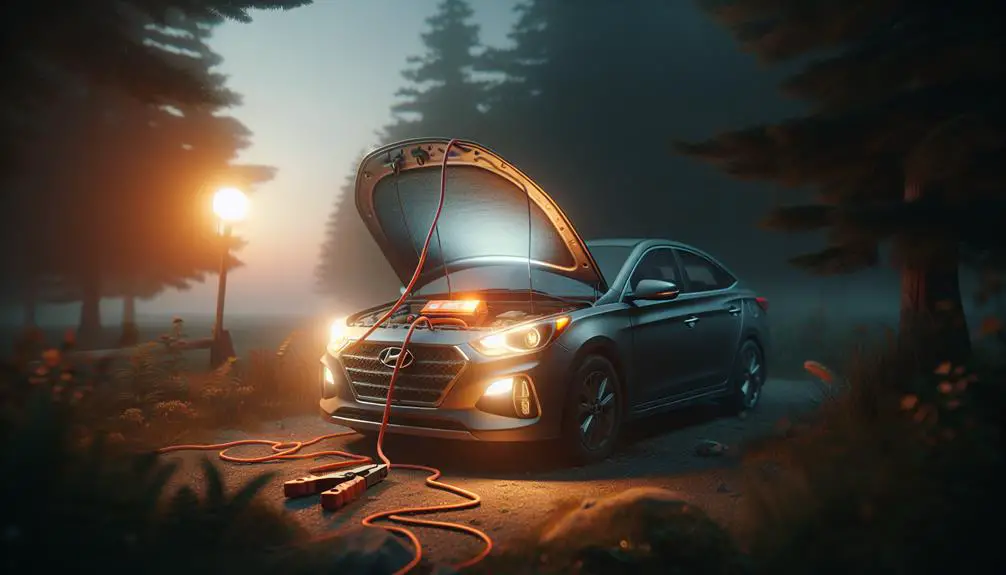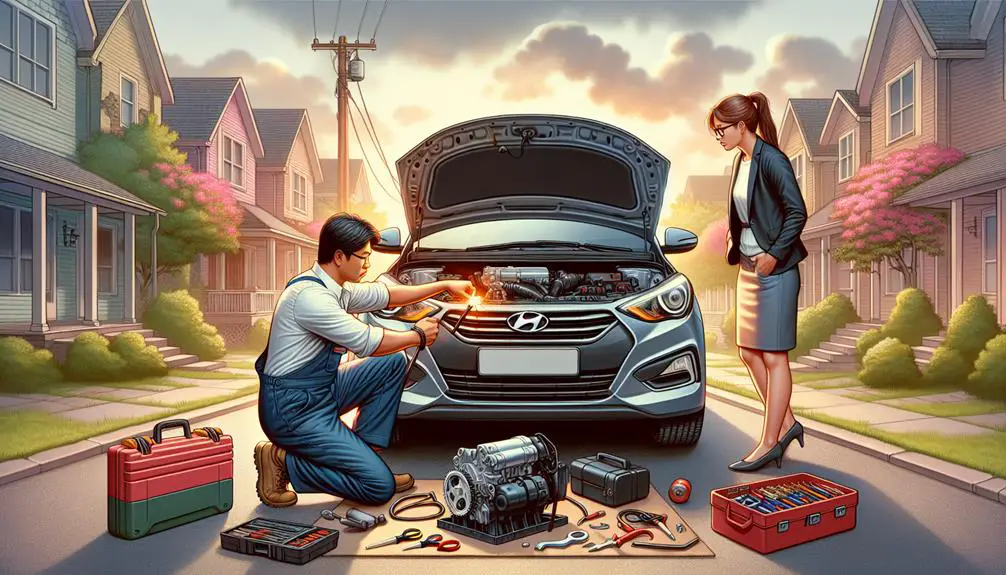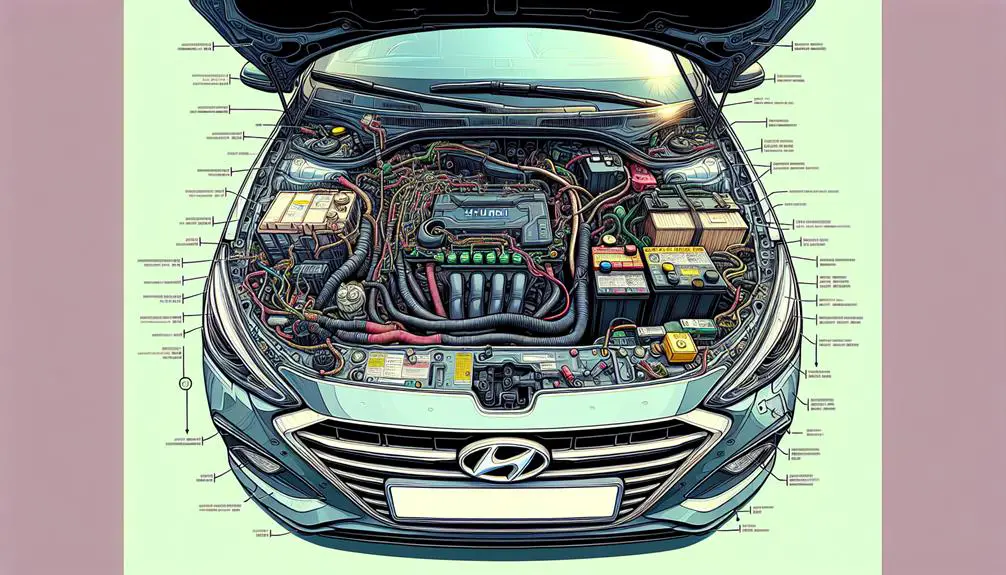- Dead battery
- Faulty ignition switch
- Fuel system issues
Having a dead battery is a common reason why a Hyundai won't start. Another possibility is a faulty ignition switch. Fuel system issues can also prevent a Hyundai from starting.
Dead or Weak Battery

A dead or weak battery often causes starting problems in Hyundai cars. This issue is usually noticeable when the car doesn't start and makes clicking sounds instead. Dim or flickering lights, radio, or dashboard indicators also indicate a battery problem.
To avoid unexpected issues, monitor your battery's health. Batteries older than three years might need replacing. Ensure the battery terminals are clean and free from corrosion. Consider running regular battery tests.
If you're experienced, you can check the battery's voltage with a multimeter. A reading below 12.4 volts suggests the battery needs recharging or replacing. If unsure, seek professional help to diagnose and fix the problem, ensuring your car starts reliably.
Faulty Ignition Switch
A faulty ignition switch can stop your Hyundai from starting. This switch is important because it allows electricity to go from the battery to the car's ignition and other essential parts. If it's not working, your car won't start.
Here's how to tell if your ignition switch is faulty:
- Intermittent Starting: Sometimes your Hyundai starts, and sometimes it doesn't. This inconsistency might mean the ignition switch is failing.
- Car Stalls: If your car stops running while driving, the ignition switch might be losing its electrical connection, causing the engine to turn off.
- No Dashboard Lights: If the dashboard lights don't turn on when you turn the key to 'On', the ignition switch could be the problem.
- Accessory Problems: If the radio, headlights, or air conditioning aren't working properly, it could be because of a faulty ignition switch.
If you notice these issues, it's important to check and possibly replace the ignition switch. Ignoring this can lead to your car not starting or unexpectedly stalling, which can be dangerous.
Starter Motor Issues

After checking the ignition switch, it's important to also check the starter motor in your Hyundai. This is because the starter motor is essential for starting your car.
If you try to start the car and hear a clicking noise but the car doesn't start, it might mean the starter motor isn't working. This can happen even if the car's lights and radio are working, which suggests the battery is fine but the starter motor might be the issue.
A whirring noise with the engine not starting could indicate the starter gear isn't connecting correctly with the engine's flywheel. This is a problem because it means the engine can't start.
Seeing or smelling smoke is a serious warning. It means the starter motor or its wiring could be overheating, especially if you've tried to start the car several times without success. This requires immediate attention.
Fuel System Problems
To solve starter motor issues, it's also critical to check your Hyundai's fuel system for smooth starting. If your car sometimes doesn't start, inspect the fuel system, which transports fuel from the tank to the engine. Here are common fuel system problems:
- Clogged Fuel Filter: The fuel filter stops dirt and rust from reaching the engine. If clogged, it restricts fuel flow, making it hard for the engine to start.
- Faulty Fuel Pump: This pump moves fuel from the tank to the engine. A malfunctioning pump means inadequate fuel pressure, preventing the car from starting.
- Fuel Line Issues: Leaks or blockages in the fuel lines stop fuel from getting to the engine.
- Dirty Fuel Injectors: These injectors spray fuel into the engine. If dirty or clogged, the fuel spray is disrupted, causing starting problems.
Fixing these issues can greatly improve your Hyundai's start-up reliability and performance.
Electrical Connections and Fuses

Check your Hyundai's electrical connections and fuses if it won't start. Start with the battery terminals. They should be clean and tight with no corrosion. Poor connections can cause the car not to start.
Next, check the fuses in the fuse box, especially the starter relay and ignition fuse. If these are blown, the car won't start. Replace any blown fuses and find out why they blew to prevent future issues.
Also, check the grounding wires. Bad ground connections can cause electrical problems. Ensure the main grounding points in the engine bay and on the frame or chassis are secure and not corroded.
Conclusion
If your Hyundai car doesn't start sometimes, it could be because of a few common problems. These include a battery that's not working well or is dead, a broken ignition switch, issues with the starter motor, fuel system problems, or bad electrical connections and fuses.
Many car owners face this problem. The best thing to do is check these problems one by one. With some effort and checking everything carefully, you should be able to find the problem and fix your car so it can start again.